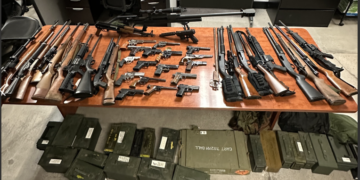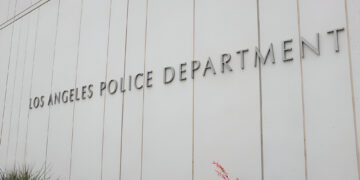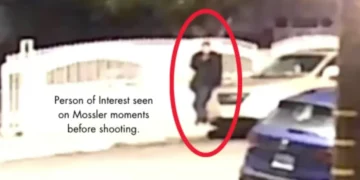LOS ANGELES, CA – California Attorney General Rob Bonta has issued a warning to wildfire victims and residents across the state to remain vigilant against price gouging, fraudulent charitable solicitations, and scams as communities work to recover from the devastating fires that have left widespread destruction in their wake.
The wildfires, which have destroyed more than 12,300 homes and buildings and claimed at least 24 lives, have left many residents vulnerable to exploitation by bad actors seeking to profit from the crisis. During a press conference on Saturday, Bonta addressed the issue alongside Los Angeles County Supervisor Lindsey Horvath, Los Angeles County Sheriff Robert Luna, LAPD Chief Jim McDonnell, state Sen. Sasha Renee Perez, and Assemblymember Pilar Schiavo. Together, they urged the public to remain cautious and provided guidance to protect individuals and communities from fraud.
“Unfortunately, we have seen before that emergencies like this, in addition to bringing out the best in so many, also bring out bad actors who seek to use the trauma and chaos of moments like this for their own gain,” Bonta said. “They see an opportunity to prey and take advantage.”
Bonta’s office emphasized the importance of carefully verifying contractors, adjusters, and charities offering assistance. The Attorney General’s statement also warned of fake organizations and crowdfunding pages that often appear after disasters but may lack the capacity to deliver meaningful aid—or may even be outright fraudulent.
Key Tips for Avoiding Scams
Bonta and other officials highlighted several strategies for avoiding scams and ensuring contributions are directed to legitimate efforts. Residents and donors are advised to verify all licenses, certifications, and reviews for contractors and charities before engaging in any agreements. Fire victims can use the Contractors State License Board to confirm the status of licensed contractors and avoid paying large sums of money upfront for services or promises of assistance.
In addition, individuals are encouraged to monitor their financial accounts and credit reports for unusual activity and to report suspected scams directly to local law enforcement or via the Attorney General’s reporting platform at oag.ca.gov/report.
With many Californians eager to assist wildfire victims, officials also issued guidance to ensure donations are going to legitimate causes. Bonta urged donors to take their time and research organizations before giving.
Individuals should confirm whether a charity is registered with the Attorney General’s Registry of Charities and Fundraisers and up-to-date with its financial reporting. This information can be accessed using the Attorney General’s Registry Search Tool. Donors are encouraged to review how much of their contribution will go directly toward charitable causes versus overhead or employee compensation.
For donations made through crowdfunding or social media platforms, Bonta advised verifying whether the funds are being directed to a registered charity, the platform itself, or an individual organizer. Furthermore, donors should investigate whether fees are charged for processing the contribution and how much of the donation will ultimately benefit the intended cause.
“Be wary of fake organizations and fraudulent websites that appear similar to well-known charities,” Bonta said. “Take a moment to double-check the web address and confirm the legitimacy of the organization before entering any personal or financial information.”
Warning Signs of Fraud
The Attorney General’s office cautioned residents to look out for common red flags, including unsolicited calls thanking individuals for donations they never pledged, websites with slightly altered URLs that may be designed to install malware, and organizations that are unable or unwilling to provide details about how donations will be used.
Bonta also reminded the public that just because an organization provides a receipt or claims to have a Tax ID Number does not mean it is an official charity or that donations are tax-deductible. The tax-exempt status of organizations can be verified using tools available on the IRS website.
Residents were urged never to provide Social Security numbers or credit card details to organizations they are unfamiliar with. Bonta noted that some groups sell or rent donor lists, so donors should review a charity’s privacy policy to understand how their information will be used.
In addition to advising wildfire victims, Bonta called on all Californians to remain cautious, noting that fraud can extend to price gouging in essential services such as housing and construction. Local officials are also monitoring for incidents of price gouging and have encouraged residents to report suspected violations immediately.
“This is a time to support one another and rebuild together,” Bonta said. “But it’s also a time for vigilance. We must ensure that those impacted by these wildfires are protected and that the generosity of Californians is not taken advantage of.”
The press conference highlighted the ongoing challenges as California continues to grapple with the wildfires’ impact. In the meantime, officials are working to enforce consumer protections and ensure that wildfire victims receive the support they need.
For additional resources, Californians can visit oag.ca.gov or the Attorney General’s dedicated disaster relief webpage for verified information on contractors, charities, and more.


























